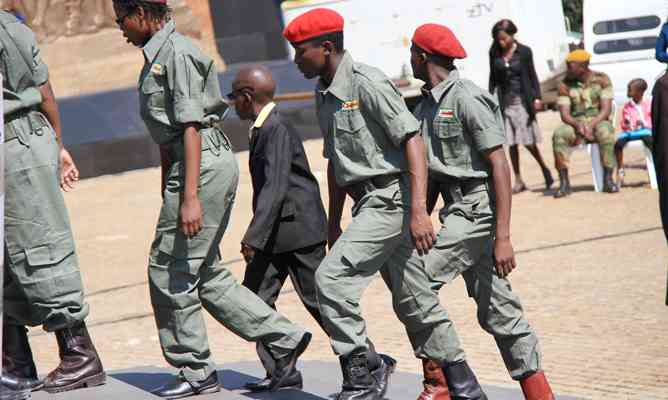
At traffic lights, at road intersections, in central Johannesburg, thronging some pavements while others lie hopelessly in some parks in the city, Zimbabweans in South Africa’s economic hub, Johannesburg, search for casual jobs while some beg for money and food from motorists.
Millions of Zimbabweans fled political persecution and economic crisis, hoping to find the grass greener on other side of the Limpopo, but the pastures have proved not not so green as scores of migrants continue to languish in the same poverty and suffering they tried to escape from in Zimbabwe.
A survey conducted in Johannesburg by this reporter, revealed that scores of Zimbabweans depended on piece jobs while some engaged in informal selling of goods for survival.
“I have been here in Johannesburg for six years now, but life has remained tough for me without a job,” said Clemence Masukume, based in Johannesburg.
Masukume said since he came to South Africa he has been depending on piece jobs, which he said were not always readily available, adding to his economically-induced misery in a foreign land.
“Every morning I woke up to scramble at one of the pick-up points here in Thokoza, where most of Zimbabwean men gather to find casual jobs from potential employers,” Masukume said.
He said it was difficult to find the lowliest of the jobs in South Africa as job seekers were far too many now, even amongst the South Africans, a situation which he said sparked serious xenophobic tensions between foreigners and locals.
Masukume also said from the casual jobs that he infrequently landed, hesqueezes his meagre earnings to send something back to his family back home.
- Chamisa under fire over US$120K donation
- Mavhunga puts DeMbare into Chibuku quarterfinals
- Pension funds bet on Cabora Bassa oilfields
- Councils defy govt fire tender directive
Keep Reading
“I’m the sole breadwinner in my family, taking care of my wife and school-going children and my mother, together with my siblings and I have to brave the storm here and make sure these people have something on their tables back home,” he said.
Jeremiah Gamuri, also based in South Africa, echoed Masukume’s sentiments, saying he had a great load on his shoulders, with everybody back home expecting to get support from him.
Gamuri said he was not willing to go back home at the moment as he was afraid of the political squabbles in the unity government, which he said may degenerate into a scenario similar to the one in 2008 in the country.
Scores of other Zimbabweans who spoke to this reporter claimed they were suffering in South Africa and were ashamed to go back home in their present situations as they said relatives would scorn them.
“Most of us here are just hanging on in the hope that one day we may make some headway and achieve goals which would earn us respect on our return home as we can’t afford to return empty-handed,” said Tapiwa Chirongedze in Johannesburg’s Katlehong suburb.
Chirongedze said he got as little as R30 to R50 per piece job, amounts far too little to support himself and his family back home, which he said was worsened by inconsistent employment in the informal sector.
“These piece jobs are not always available, which impacts negatively on me and my family back home, sparking some wrangling with my landlord here,” Chirongedze said.
Thabani Sibanda, who said he hailed from Tsholotsho in Matabeleland, said he was battling to pay transporters for the few goods that he often sends home when he gets money from piece jobs.
“I always battle to pay omalayitsha (transporters/couriers) who ferry my goods to my people at home. The money I get from piece jobs is causing me more misery than joy as I’m always left drained to the last cent and even fail to pay rent, ending up in fights with my landlord,” Sibanda said.
Reports from Home Affairs in Johannesburg indicated that millions of Zimbabweans aspiring for decent jobs in the country were ineligible for the new permits as they have no passports.
Several other Zimbabwean migrants interviewed expressed fears about returning home as they said there was still a serious political crisis, violence and poverty.
Many struggling Zimbabwean immigrants in South Africa are taken care of by charity organisations and churches such as the Salvation Army and the Methodists.
A visit to the Methodist church in Central Johannesburg by this reporter found numerous desperate-looking Zimbabweans thronging the building, some milling outside as others just sat on pavements, apparently waiting for food handouts from well-wishers.
A Zimbabwean passport application in South Africa costs R700, the equivalent of $100, which many immigrants can not afford as they are not formally employed.
The South African government stands accused by rights groups in the country for failing to respect the rights of Zimbabwean refugees, who continue to be harassed and discriminated against by local South Africans.
In terms of the United Nations High Commission for Refugees, asylum-seekers are supposed to be given refugee status within six months, but Zimbabwean immigrants in South Africa continue to renew asylum permits for years on end without getting refugee status.
Meanwhile, Home Affairs offices across South Africa are always congested with people from Zimbabwe seeking work permits.











